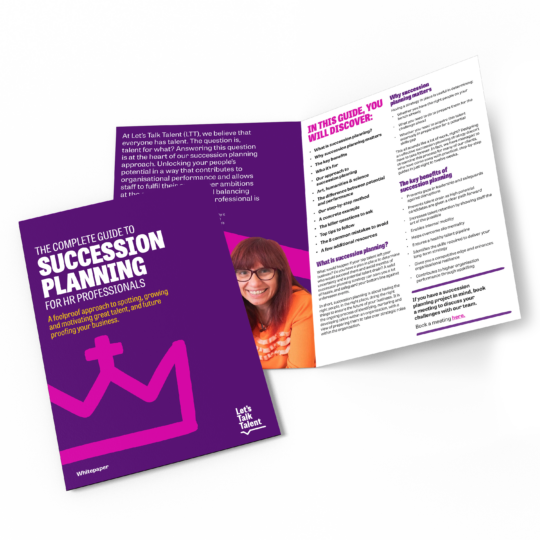A guide to building better teams
Traditional models of perfect, stable teams, forged through a combination of discipline and homogenised thinking led by a strong or innovative leader have been redundant for some time. The current situation demands much more agility and a need to solve seemingly insurmountable challenges. To meet these challenges you need exceptional teams more than you need exceptional people.
In this guide, we’re going to focus on what works when it comes to building the best teams – and how to get the best from your people whatever the challenges might be.
What Are Teams Now?
Teams have evolved as the challenges we face have changed and become bigger. In the past, we relied on singular geniuses and innovators coming up with solutions that could be executed by teams through rigorous planning and prescriptive delivery. Although elements of this may still be around it’s true to say that innovation and creativity are now much more of a collective responsibility dependent upon leadership that is not focussed on hierarchy. This new approach keeps on delivering – whether that’s in sport, business innovation, disaster response or cutting- edge technology.
“The issues we face today are so big and so challenging, it becomes quite clear we can’t do it alone, and so there is a certain humility in knowing you have to invite people in.”
Paul Polman, CEO, Unilever.
Polman’s invitation to leaders described above is based on an understanding of the complex challenges faced now, against a backdrop of constantly changing groups of employees and collaborators. This demands a genuine team response where leadership becomes open to allowing solutions to come from anywhere. The new team spirit is about shared responsibility where motivation, innovation and creativity are collectively ‘owned’ and performance is based on collaboration, not competition.
You could say there are three types of team now:
- Teams that share a long-term goal within a department or applied to a large project – often headed up by a manager or group of managers and characterised by a stable group sharing a common aim.
- Teams that are simply organisations as a whole. Everyone shares the same essential values across departments, disciplines and regions.
- Teams that come together for a short period to respond to a specific need, project or urgent situation. These teams can involve people from multiple organisations, agencies and regions but are not necessarily stable and may change rapidly.
So, when we talk about teams it’s all about the context, the purpose and why they are together. And small organisations will have different needs from larger ones – especially when they get larger than around 150 people. At that point things change and understanding what happens to our ‘Tribes’ when they scale up is important, especially for start-ups, because the whole dynamic of teams needs an approach that appreciates and understands what’s at play (see this article on Tribal Leadership from Farnham Street for more about this).
Teams are now always in beta-mode, so they need to be trusted to evolve and the processes you use need to support, rather than hinder this. So don’t oversell your culture, just get clear, congruent and joined up. Allow teams to be organic and allow people to be different in how they interpret the nuances of what you’re asking them to do.
Essentially though, it’s about solving problems and for that, we need strong teams rather than just great individuals. We’re always more than the sum of our parts and that’s a key thing leaders need to be aware of. The onus is on them to provide the culture, but not dictate or try to control all the processes and outcomes. Once you’ve nailed the principles that matter here, just trust.
You Need Diversity
If managers and HR departments are hiring people like themselves, it’s likely they’ll struggle as they’ll lack the diversity needed to meet their challenges. Solutions will often have to be found elsewhere and teams will continue to lack innovation despite the best efforts of management. When we create a homogeneous environment this kind of echo-chamber is inhibitive to performance and growth.
The fact is we need people who look, think and believe differently to us. As long as we all share the same solution-focused intention, diversity challenges us to see the world differently. Innovation is nurtured not through the status-quo but through insights that we haven’t heard before. It’s normally on the periphery and when we allow people to share the best of themselves then we’ll be moving in the right direction.
So, don’t be scared to include the (perhaps hidden) diversity currently within your organisation and when you hire, remember how much your organisation needs it. Don’t keep recreating the past, know that you need new insights and perspectives to grow.
How To Build The Team
There’s no shortage of examples when it comes to poor team building events that rely on an element of ‘forced fun’ or that reinforce a culture of command and control. We need to keep it simple and support the activation of our essential human values.
We need humility and a genuine interest in what other people are bringing to nurture teams and enhance our organisation. Autonomy and trust go hand in hand with performance. We need to instil this – not because it’s ‘politically correct’ but because it works.
In teams dominated by just a few voices, solutions will be lost and the creative energy and dynamism seen in high-performing teams just won’t happen. MIT found that when one or two voices dominate, team performance was weaker than in teams with a more collective approach.
It’s not complicated, is it?
- Create the right culture and innovation and performance will happen.
- Forced-fun and ‘team-building’ for the sake of it, won’t work. Remember, team building days can be effective but they need to augment culture, not attempt to prop-up a dysfunctional one.
- If you do have a programme of social and team-building events, check that you’re not inadvertently excluding people. For example, are pub-trips or evening events excluding teetotallers and parents?
- Know that you don’t have all the answers and allow solutions to come from anywhere.
- Teams thrive in an open, hands-off culture where solutions are curated through a diverse group of people.
- Don’t over-rely on a small group of managers or leaders.
What’s The Biggest Factor At Play Here?
Psychological safety. In my own work, this is the single most effective component in building any team. Although it’s a simple principle it’s also the biggest challenge to hierarchical thinking and silo-based attitudes. When you allow people to share their thoughts, without fear of being judged or not listened too, you add a flow of creativity and allow fresh thinking to emerge. It’s about basic human values and the research backs this up.
Google’s massive ‘Project Aristotle’ showed that pretty much the only factor that was consistent when it came to team performance was psychological safety. Throughout all the data their project gleaned the only clear pattern that emerged was this. This insight is a gamechanger and it’s hugely helpful for organisations looking for the ‘magic’ displayed by high-performing teams. This simple idea, when placed at the heart of how organisations function makes the biggest difference.
The work of Amy Edmondson further confirms this – whether it be for medical teams, global organisations or teams responding to major incidents and crises. The combination of humility, openness and generosity of interpretation means seemingly impossible problems can be overcome. Psychological safety is the kernel at the heart of the world’s most exceptional teams.
What Do You Need to Do Now?
Making your team culture irresistible to existing and new talent may seem like a big challenge, but the principles of success are simple. We all want to see teams working fluidly and performing at a high-level with enough maturity to transform outcomes. It’s essential that talent is owned by the organisation as a whole and that each team member feel totally part of this. It’s not just a management thing, it’s about the collective and what signals you give to it. If you can do this, you’ll be setting yourself up nicely.
Having a dispassionate pair of eyes can be immensely helpful. Expertise that understands and empathises with your predicament will help get your team ethos on track. This is what we’ve been doing for more than 20 years. Give us a call and let’s talk teams.

